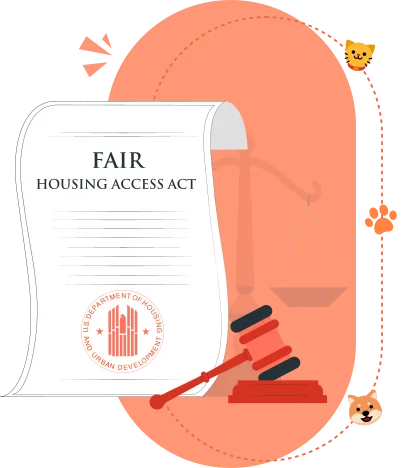The Air Carrier Access Act and Emotional Support Animals
The Air Carrier Access Act (ACAA) is a federal law that prohibits discrimination against individuals with
disabilities in air travel. For years, this law provided protections for Emotional Support Animals,
allowing them to accompany their owners in airplane cabins without additional charges.
However, significant changes to the ACAA regulations, effective January 2021, have redefined the
treatment of ESAs in air travel.
Under the updated Department of Transportation (DOT) rules, airlines are no longer required to
accommodate Emotional Support Animals as service animals. Instead, ESAs are now classified as pets,
subject to the airline’s pet policies, which may include fees, size restrictions, and travel
limitations.
Key Impacts of the ACAA Changes for ESA Owners
- ESA Classification as Pets
Airlines have discretion to treat Emotional Support Animals as pets, meaning owners must adhere to the
airline’s pet travel policies.
Unlike in the past, ESA owners may now be required to pay pet fees for their animals to travel in the
cabin or cargo hold.
Owners must notify airlines in advance and confirm the carrier’s specific rules regarding pet travel.
- Exemption for Service Animals
The ACAA still protects service animals trained to perform tasks for individuals with disabilities,
maintaining their right to travel in cabins without additional fees.
Pricing
PSD Letter
Reviews
ESA By States
ESA Laws
Resources

